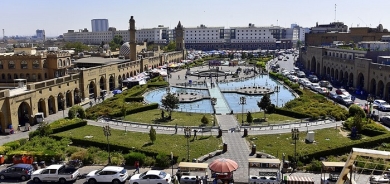Israel won’t warn U.S. before pre-emptive strike against Iran’s nuclear facilities

Israeli officials said that if they eventually decide a strike is necessary, they would keep the Americans in the dark to decrease the likelihood that the U.S. would be held responsible for failing to stop Israel’s potential attack. The U.S. has been working with the Israelis for months to persuade them that an attack would be only a temporary setback to Iran's nuclear program.
Israeli Prime Minister Benjamin Netanyahu and Defense Minister Ehud Barak delivered the message to a series of top-level U.S. visitors to the country, including the chairman of the Joint Chiefs of Staff, the White House national security adviser and the director of national intelligence, and top U.S. lawmakers, all trying to close the trust gap between Israel and the U.S. over how to deal with Iran's nuclear ambitions, according to The Associated Press.
Netanyahu delivered the same message to all the Americans who have traveled to Israel for talks, the U.S. official said.
The official spoke on condition of anonymity to discuss sensitive strategic negotiations.
The White House did not respond to requests for comment, and the Pentagon and Office of Director of National Intelligence declined to comment, as did the Israeli Embassy.
Guarantee for existence of Jewish state
Netanyahu declared Monday that Israel’s leaders must guarantee not only the country’s security but also the very existence of the Jewish state.
“The leaders of the state of Israel guarantee not only the security of Israel and its citizens, but also the fundamental existence of the country,” said Netanyahu in a television interview on a program marking the 20th anniversary of prime minister Menachem Begin’s death.
Netanyahu was asked about Begin’s decision to destroy an Iraqi nuclear reactor in 1981, according to AFP.
The successful attack is often referred to by Israeli analysts when speculating about the possibility of an Israeli military operation against nuclear installations in Iran.
When asked if he had studied how Begin reached the decision to strike Iraq, Netanyahu insisted that each case is different.
“Each decision is a separate decision,” he said.
Netanyahu had said on Sunday that Iran’s controversial nuclear program, which Western powers believe is aimed at developing an atom bomb, would be the main topic in his discussions at the White House with President Barack Obama on March 5.
Iran claims its nuclear program is for peaceful purposes, but the International Atomic Energy Agency has raised alarms that its uranium enrichment program might be a precursor to building nuclear weapons. The U.S. has said it does not know whether Tehran has decided to weaponize its nuclear material and put it on a missile or other delivery device.
The secret warning is likely to worry U.S. officials and begin the high level meetings with Israel and the U.S. far apart on how to handle Iran.
But the apparent decision to keep the U.S. in the dark also stems from Israel’s frustration with the White House. After a visit by National Security Adviser Tom Donilon in particular, they became convinced the Americans would neither take military action, nor go along with unilateral action by Israel against Iran. The Israelis concluded they would have to conduct a strike unilaterally -- a point they are likely to hammer home in a series of meetings over the next two weeks in Washington, the official said.
Barak will meet with top administration and congressional officials during his visit.
Behind-the-scene warning
The behind-the-scenes warning belies the publicly united front the two sides have attempted to craft with the shuttle diplomacy to each other’s capitals.
“It’s unprecedented outreach to Israel to make sure we are working together to develop the plan to deter Iran from developing a nuclear weapon,” and to keep them from exporting terrorism, said Maryland Rep. Dutch Ruppersberger, the top Democrat on the House Intelligence Committee.
He traveled there with the Intelligence Committee chairman, Rep. Mike Rogers, a Michigan Republican, to meet Israel’s prime minister and defense minister, along with other officials.
“We talked about the fact that sanctions are working and they are going to get a lot more aggressive,” Ruppersberger added, according to AP.
They also talked about presenting a unified front to Iran, to counter the media reports that the two countries are at odds over how and when to attack Iran.
“We have to learn from North Korea. All those (peace) talks and stalling and they developed a nuclear weapon,” he said. “We are going to send a message, enough is enough, the stalling is over. ... All options are on the table.”
“I got the sense that Israel is incredibly serious about a strike on their nuclear weapons program,” Rogers told CNN on Monday. “It’s their calculus that the administration ... is not serious about a real military consequence to Iran moving forward.”
“They believe they’re going to have to make a decision on their own, given the current posture of the United States,” he added.
U.S. intelligence and special operations officials have tried to keep a dialogue going with Israel, despite the high-level impasse, sharing with them options such as allowing Israel to use U.S. bases in the region from which to launch such a strike, as a way to make sure the Israelis give the Americans a heads-up, according to the U.S. official, and a former U.S. official with knowledge of the communications
Cooperation has improved on sharing of intelligence in the region, according to one current and one former U.S. official. Israel is providing key information on Syria for instance, now that the U.S. has closed its embassy and pulled out both its diplomats and intelligence officials stationed there, the U.S. official said.
(Reuters)














